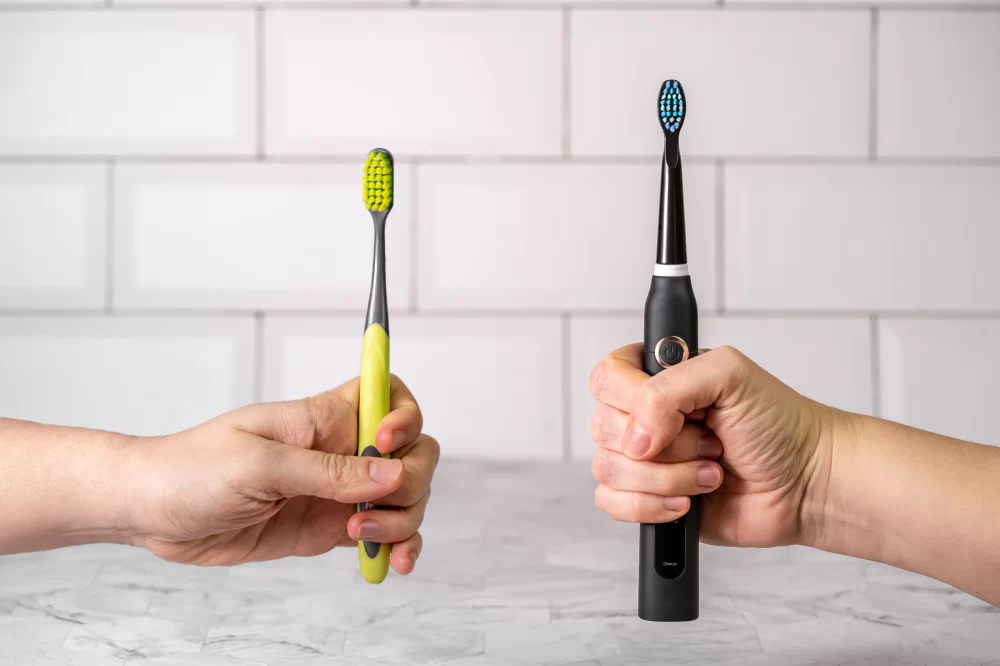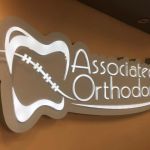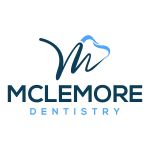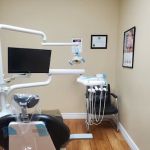
How to Choose the Best Toothbrush: Electric vs. Manual
When it comes to taking care of our teeth, one of the most important decisions we can make is choosing the right toothbrush. As someone who's been on both sides of the debate—using both electric and manual toothbrushes—I know firsthand how confusing it can be to decide which one is better for your oral health. Over the years, I’ve experimented with both types, and I’ve learned some valuable lessons that I’m excited to share with you today. So, if you're wondering whether an electric or manual toothbrush is the better choice, keep reading. I’ll walk you through the pros and cons of each, and help you make the best decision for your teeth and gums.
1. The Case for Manual Toothbrushes
Let’s start with the basics: manual toothbrushes. For many years, I used a manual toothbrush without giving it much thought. I mean, it’s the classic choice, right? You can find one just about anywhere—supermarkets, drugstores, even gas stations. It’s convenient, inexpensive, and easy to use. But, of course, there’s more to it than that. Here’s what I learned about manual toothbrushes after years of use:
- Affordable: One of the best things about manual toothbrushes is how budget-friendly they are. I’ve often found myself grabbing one at the store for just a couple of dollars, which makes it an easy choice if you're on a tight budget.
- Control: I’ve always liked the level of control you get with a manual toothbrush. You decide how much pressure you apply and how fast or slow you move the brush. For some, this can be an advantage when it comes to focusing on hard-to-reach areas or gentle brushing if you have sensitive gums.
- Portability: Manual toothbrushes are compact and lightweight, making them easy to carry around. I’ve traveled with mine many times without worrying about charging or carrying extra accessories.
That being said, manual toothbrushes do require more effort on your part to be effective. You need to ensure you're brushing for the recommended two minutes and that you're using the right technique. In my early days of using a manual toothbrush, I didn't always pay attention to how long I was brushing, and sometimes, I didn’t reach all the nooks and crannies of my mouth. This is something to consider if you’re prone to rushing through your brushing routine.
2. The Advantages of Electric Toothbrushes
After a few years of sticking to a manual toothbrush, I decided to try an electric toothbrush—and it completely changed my oral care routine. The first time I used it, I noticed how much more effective it felt. Here’s why electric toothbrushes stand out:
- Superior Plaque Removal: Research shows that electric toothbrushes remove more plaque than manual ones. I definitely noticed a difference in how clean my teeth felt after brushing. The rotating or vibrating bristles do all the work for you, which means you don’t need to worry about applying the right amount of pressure or brushing in the right motion.
- Built-in Timers: One of my favorite features of electric toothbrushes is the built-in timer. It makes sure I brush for the full two minutes, which I sometimes forgot to do with a manual brush. The timer also helps me focus on each quadrant of my mouth, ensuring that I’m giving each area the proper attention.
- Ease of Use: For people with limited mobility or arthritis, electric toothbrushes are a game-changer. I found that using an electric toothbrush requires less effort to get a thorough clean. You simply hold the brush, and the bristles do the work. This was especially helpful on days when I was feeling tired or in a rush.
Of course, electric toothbrushes come with a few downsides. They’re more expensive than manual brushes, and they require charging or replacing batteries. But for me, the investment paid off when I saw the improvement in my oral health and the ease of use they provided.
3. The Science Behind Toothbrush Effectiveness
It wasn’t until I started looking into the research that I realized just how much the type of toothbrush can impact my oral health. Studies have shown that electric toothbrushes, particularly those with oscillating-rotating heads, are more effective at reducing plaque and gingivitis compared to manual toothbrushes. I also came across evidence that electric toothbrushes tend to be more gentle on the gums while still providing a deeper clean.
In fact, one study from the Journal of Clinical Periodontology found that electric toothbrush users experienced a 21% greater reduction in plaque and a 11% greater reduction in gingivitis compared to manual toothbrush users. This was eye-opening for me and convinced me that an electric toothbrush could offer superior cleaning, especially for someone like me who’s prone to plaque buildup.
4. Choosing the Right Toothbrush for Your Needs
So, which one should you choose? Ultimately, it depends on your personal needs, budget, and preferences. Here are a few things to consider based on your unique situation:
- If you’re on a budget: A manual toothbrush is an excellent option. You can find high-quality manual brushes that are affordable and effective with proper brushing technique.
- If you’re looking for a more thorough clean: An electric toothbrush might be the better choice. It’s especially useful if you want to improve plaque removal, reduce gum inflammation, or if you struggle with brushing technique.
- If you have sensitive gums or limited mobility: Electric toothbrushes can offer a gentler brushing experience, especially with softer brush heads. They also reduce the effort needed to clean effectively.
- If you want added features: Many electric toothbrushes come with extras like pressure sensors, timers, and multiple brushing modes that can enhance your brushing experience and help with specific needs, such as whitening or gum care.
5. My Personal Toothbrush Journey: Which One Wins?
After years of switching between manual and electric brushes, I can confidently say that I prefer the electric toothbrush. It’s not just the better clean; it’s the ease and convenience it offers. I’ve found that my teeth stay cleaner for longer, and I rarely miss areas I used to with manual brushing. However, I still keep a manual toothbrush on hand for travel or quick touch-ups when I’m away from home.
Ultimately, the choice between electric and manual comes down to what you value most in your oral care routine. Both types of toothbrushes have their merits, and you can’t go wrong with either one if you use the right technique and brush for the right amount of time. However, if you’re looking for the highest level of cleaning efficiency, an electric toothbrush is hard to beat.
For personalized toothbrush recommendations and to explore the best oral care products for your needs, visit Dentistry Toothtruth for expert advice and suggestions tailored to your dental health.







 Scott Soderquist, DDS, MS0.0 (0 review)
Scott Soderquist, DDS, MS0.0 (0 review) Willamette Dental Group - Tacoma3.0 (203 review)
Willamette Dental Group - Tacoma3.0 (203 review) Kevin Walker DDS and Mae Lee Springer DDS5.0 (125 review)
Kevin Walker DDS and Mae Lee Springer DDS5.0 (125 review) McLemore Dentistry4.0 (330 review)
McLemore Dentistry4.0 (330 review) Reynolds Family Dentistry of Richmond4.0 (19 review)
Reynolds Family Dentistry of Richmond4.0 (19 review) Densley Dental4.0 (260 review)
Densley Dental4.0 (260 review) The Importance of Oral Health Education During Pregnancy for a Healthy Pregnancy
The Importance of Oral Health Education During Pregnancy for a Healthy Pregnancy Best Tips for Brushing Your Teeth Properly for Healthy Gums: Essential Techniques for Oral Health
Best Tips for Brushing Your Teeth Properly for Healthy Gums: Essential Techniques for Oral Health Why Skipping Dental Checkups Can Lead to Bigger Oral Health Problems
Why Skipping Dental Checkups Can Lead to Bigger Oral Health Problems Advantages of Porcelain Dental Restorations
Advantages of Porcelain Dental Restorations How Can Diabetes Cause Tooth and Gum Problems? Preventing and Managing Oral Health Issues
How Can Diabetes Cause Tooth and Gum Problems? Preventing and Managing Oral Health Issues Healthy Habits for Promoting Good Oral Health and Hygiene: Tips for a Healthy Smile
Healthy Habits for Promoting Good Oral Health and Hygiene: Tips for a Healthy Smile